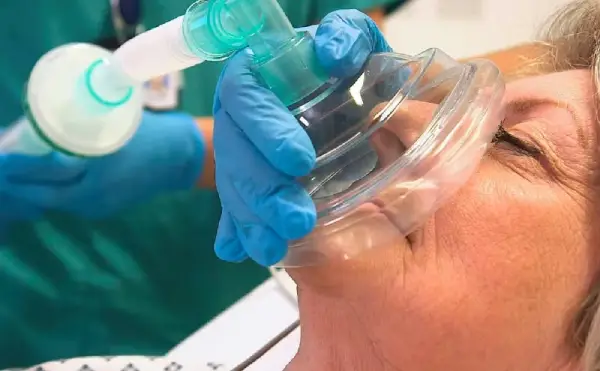This section gives information to help you prepare for your anaesthetic.
You can find more information in the Patients and Carers section on the Royal College of Anaesthetists website (opens in a new tab) (opens in a new tab). You can also request further information from your anaesthetist when you see them before your operation.
Anaesthetists
Anaesthetists are doctors with specialist training who:
- discuss types of anaesthesia with you and choose the best option for your procedure.
- Discuss the risks of anaesthesia with you.
- Agree on a plan with you for your anaesthetic and pain control.
- Be responsible for giving you your anaesthetic and ensuring your wellbeing and safety throughout your surgery. They will stay with you throughout the operation.
- Manage any blood transfusions you may need.
- Plan your care, if needed, in the Intensive Care Unit.
- Make your experience as pleasant and pain-free as possible.
Before your anaesthetic
You will meet your anaesthetist before your operation on the day of surgery.
Your anaesthetist will ask about:
- your general health.
- any tablets, medicines, herbal remedies or supplements you are taking, both prescribed and purchased over the counter.
- any allergies you may have.
- important medical conditions for which you have seen other specialists at other hospitals.
- any current use of cigarettes, alcohol, or other recreational drugs.
They will also:
- discuss which types of anaesthetic can be used.
- discuss the benefits, risks, and your preferences.
- decide with you which anaesthetic would be best for you.
Nothing will happen until you understand and agree with what has been planned. You have the right to refuse if you do not want any of the treatment suggested.
The choice of anaesthetic depends on:
- your operation.
- your answers to the questions you have been asked.
- your physical condition.
- your preferences and the reasons for them.
- your anaesthetist’s recommendations and the reasons for them.
- the equipment, staff, and other resources at the hospital.
If you are having a local or regional anaesthetic, you may:
- be fully alert.
- be relaxed and sleepy (sedated).
- have a general anaesthetic as well.
You can wear your glasses, hearing aids, and dentures until you are in the anaesthetic room. If you are having a local or regional anaesthetic, you may be able to keep them on during the operation.
Regional anaesthetics
Your anaesthetist will ask you to remain still while the injections are given. You may notice a warm tingling feeling as the anaesthetic begins to take effect. Your operation will only proceed when you and your anaesthetist are sure that the area is numb. If you are not having sedation, you will remain alert and aware of your surroundings. A screen shields the operating site, so you will not see the operation. Your anaesthetist is always near you, and you can speak to them whenever you want to.
General anaesthetics
Once you are unconscious, an anaesthetist stays with you at all times and continues to administer medication to keep you anaesthetised.

As soon as the operation is finished, the medication will be stopped or reversed so that you regain consciousness. After the operation, you will be taken to the recovery room, where recovery staff will remain with you at all times. Once they are satisfied that you have recovered safely from your anaesthetic, you will be taken back to the ward.
What will I feel like afterwards?
How you feel will depend on the type of anaesthetic and operation you have had, how much pain-relieving medicine you need, and your general health.
Understanding risk
In modern anaesthesia, serious problems are uncommon. Risk cannot be removed completely, but modern equipment, training, and medication have made it a much safer procedure in recent years. To understand a risk, you must know:
- How likely it is to happen.
- How serious it could be.
- How it can be treated.
The risk to you as an individual will depend on:
- Whether you have any other illness.
- Personal factors, such as smoking or being overweight.
- Surgery that is complicated, long, or done in an emergency.
Questions you may like to ask your anaesthetist
- Who will give my anaesthetic to me?
- Do I have to have a general anaesthetic?
- What type of anaesthetic do you recommend?
- Have you often used this type of anaesthetic?
- What are the risks of this type of anaesthetic?
- Do I have any special risks?
- How will I feel afterwards?
Listed below are a number of side effects that may be experienced. Please ask your anaesthetist if you require more information.
They will discuss with you which of these will be particularly relevant to you.
Deaths caused by anaesthesia are very rare and are usually caused by a combination of four or five complications together.
There are around five deaths for every million anaesthetics in the UK.

